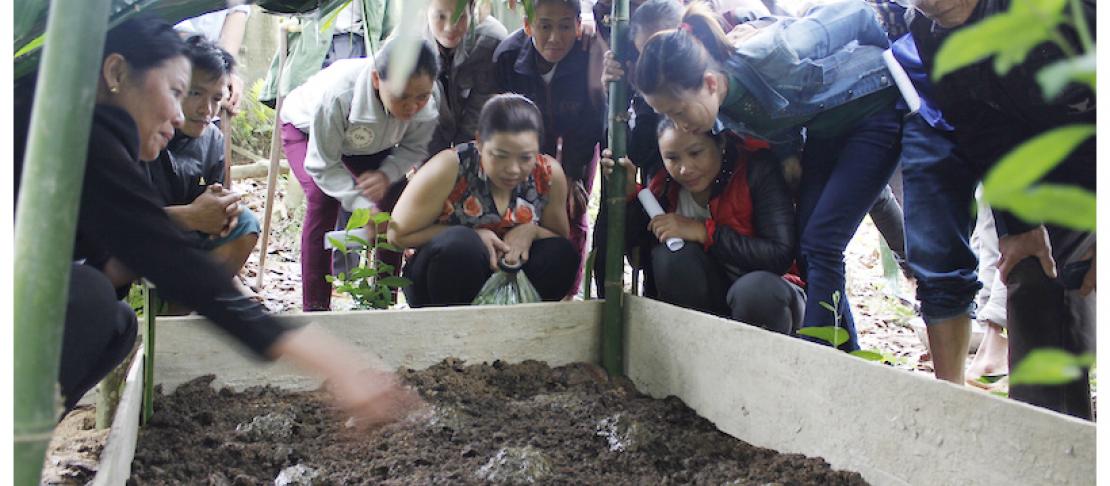Worms as nutrients for animals and soil

A training workshop on vermiculture recently wormed its way to My Loi, Vietnam. Vermiculture helps in improving agricultural productivity by producing fertilizer and improving soil quality.
This is an excerpt of the original blog story, Farming worms for climate-smart agriculture in Vietnam, first published on the World Agroforestry Centre (ICRAF) blog.
VIETNAM – After attending a roving workshop on climate-smart agriculture (CSA) practices in the Philippines, Mr Duong Van Tham of My Loi Village is now re-echoing to his community one of the things he learned from the workshop: vermiculture.
With support from the CGIAR Research Program on Climate Change, Agriculture and Food Security (CCAFS) Southeast Asia and the World Agroforestry Centre (ICRAF) Vietnam, a training workshop on establishing vermiculture using livestock manure was conducted in My Loi Village on 13 October 2015.
Vermiculture, or the use of worms to decompose organic wastes into useful fertilizer, proves to be effective in improving the soil structure and water retention. Eleven households were given 50 kg of earthworm materials used to set up their own vermiculture and more than 50 households received earthworms they can use in their gardens. “We expect the number of earthworms to double in a month or two,” said Mr Nguyen Viet Nghi, a vermiculture expert. “These ‘extra’ earthworms are to be shared to other families as a form of ‘revolving fund’ so they too could start their own vermiculture.”
“When there are enough earthworms, the compost will benefit many home gardens in the village,” said village leader Mr Tham.
This climate-smart intervention will likewise be used in the school vegetable gardens and home gardens.
Read the original story on the ICRAF blog: Farming worms for climate-smart agriculture in Vietnam
Read more:
- Barren no more: farmers restore forest landscape
- Farming for the future: How young people will be feeding the next generation
Ryan Angelo Celis is a Senior Communication Specialist for CCAFS Southeast Asia.



